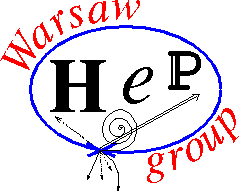SEMINARIUM FIZYKI WIELKICH ENERGII
Dnia 10 października (piątek) o godzinie 11:30, w sali B2.38 odbędzie się seminarium, na którym zostanie wygłoszony referat pt.:
„Search for dark matter within the Global Argon Dark Matter Collaboration programme”
Referuje: dr hab. Marcin Kuźniak, prof CAMK PAN (AstroCeNT)
The nature of dark matter is one of the most important questions of contemporary physics. Observational evidence supports the existence of dark matter, which constitutes approximately 27% of the Universe mass-energy balance. Its exact nature remains unknown, however there are some indications that it could be a new type of particles beyond the Standard Model, such as the weakly interacting massive particles (WIMP).
The direct search for interactions of WIMPs with ordinary matter is carried out with large underground detectors, with currently the most promising detection technology based on the use of a large scintillating mass of liquid argon or xenon as the detector medium. Efficient collection and detection of scintillation light from multi-tonne detectors poses challenges and motivates dedicated R&D on optical materials, including wavelength shifters, as well as on photosensors.
Such work at AstroCeNT, either in the context of the Global Argon Dark Matter Collaboration, or general R&D applicable also to neutrino detectors, will be presented, together with a brief overview of the field.
Serdecznie zapraszamy
dr hab. Katarzyna Grzelak
prof. dr hab. Aleksander Filip Żarnecki

